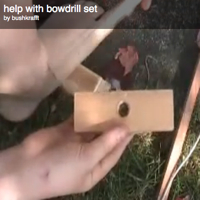
Image by Stephen Poff
I just got my latest issue of Wired Magazine (Nov 2011). In “Why Johnny Can’t Search,” Clive Thompson writes:
We’re often told that young people tend to be the most tech savvy among us. But just how savvy are they? A group of researchers led by College of Charleston business professor Bing Pan tried to find out. Specifically, Pan wanted to know how skillful young folks are at online search. His team gathered a group of college students and asked them to look up the answers to a handful of questions. Perhaps not surprisingly, the students generally relied on the webpages at the top of Google’s results list.
But Pan pulled a trick: he changed the order of the results for some students. More often than not, those kids went for the bait and also used the (falsely) top-ranked pages. Pan grimly concluded that students aren’t assessing information sources on their own merit – they’re putting too much trust in machine.
Other studies have found the same thing: high school and college students may be “digital natives” but they’re wretched at searching. In a recent experiment at Northwestern, when 102 undergraduates were asked to do some research online, none went to the trouble of checking the author’s credentials. In 1955, we wondered why Johnny can’t read. Today the question is why can’t Johnny search?
Every day he walks into a sanitized information landscape with the expectation that anything he finds behind the school firewall is valid. How does that teach Johnny good digital hygiene?
If you spend any time around students, none of this comes as news. Given a research task, many go straight to Google and grab the first “low-hanging fruit” they find. Their inability to critically evaluate sources or context is more crucial as the barrier to the production and distribution of information has disappeared. (It doesn’t take much for any crank to start blogging the “true story of the Holocaust.”) While many applaud the digital revolution’s successful overthrow of the media gatekeepers, it does force us to become our own editors. (Should I forward the email that claims in next week’s sky, Mars will appear bigger than the moon?)
Many schools respond by sequestering students behind an information firewall. That allows school administrators to sleep at night knowing that students can’t get to any “bad information” during the school day. It’s a safe “CYA” for the educators, but it doesn’t provide any guided practice for Johnny to learn how to critically evaluate information. In fact, I think it sets Johnny up to fail in our “wild west” of information. Every day he walks into a sanitized information landscape with the expectation that anything he finds behind the school firewall is valid. How does that teach Johnny good digital hygiene?
Schools inhibit the development of critical evaluation skills in another way – the relentless (test prep) focus on mastery of facts. Johnny can assess the validity of information because he’s awash in a sea of text without context. Critically evaluating sources requires a deeper understanding of author and purpose. That’s developed with an inquiry-based approach to learning – exploring multiple sources, sussing out context, comparing perspectives, recognizing patterns, and encouraging constructive controversy and evaluation among peers. No time for that – we have to “cover” content for the test. In the relentless march to the exam, Johnny gets well acclimated to quickly stuffing his head with facts. No wonder he’s willing to take up Google on the bet that “I’m Feeling Lucky.”
Today’s student needs to become a critically-thinking citizen and the best response schools can come up with is to force-feed students in sanitized information feedlots.
It would seem that the demands of the information age would put a premium on teaching critical thinking skills. But the test regime leaves little time in the school day for that. Teaching information literacy is everyone’s (and no one’s) responsibility in school. (And I fear most of the librarians who were “fighting that good fight” didn’t survive the latest round of budget cuts.)
And isn’t this all so ironic. We live in an information age that puts a premium on the ability to find, decode, evaluate, store and communicate information. (All skills central to mastery of the Common Core standards). Today’s student should be in training to become a critically-thinking citizen and the best response schools can come up with is to force-feed students in sanitized information feedlots.
Image credit: flickr/Stephen Poff








